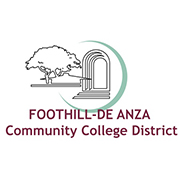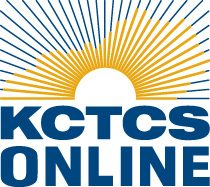WOW Media Release 2010
WCET Announces Awards for Outstanding Use of Technology in Higher Education
For Immediate Release
October 20, 2010
Contact: Mollie McGill
Deputy Director, WCET
303-541-0306
Boulder, Colorado – The WICHE Cooperative for Educational Technologies (WCET) is pleased to announce the recipients of the 2010 WCET Outstanding Work (WOW) award, a competition that recognizes innovative uses of educational technologies in higher education. Since 2004 the WCET WOW award has been presented to higher education institutions and organizations for exceptionally creative, technology-based solutions to a significant problem or need. In 2010, the awards go to four ambitious projects, each addressing a challenging issue with a unique solution: changing the role of journalism and new media to promote civic engagement; providing adult learners with on-demand programs and services to encourage degree completion; increasing the adoption of open textbooks to lower student costs; and promoting the integrity of academic online programs.
2010’s WOW Award recipients:
- Foothill-De Anza Community College District
- Kentucky Virtual Campus
- Rio Salado College
- Winona State University
“This year the selection process included a more explicit review of measurable outcomes to assess the actual impact of each approach to the specific, targeted need,” noted Peg O’Brien, WOW Awards Committee chair and director of extended programs for Dakota State University in South Dakota. “The WCET WOW award represents a great tribute to the work of the winning organizations, and also serves as a meaningful way to disseminate exemplar practices to the higher education community.”
These winning projects, which will be honored at the WCET Annual Conference on November 10-13 in La Jolla, California, include the following:
 Foothill-De Anza Community College District’s College Open Textbooks Collaborative addresses the goal of textbook costs for community college students, a problem than can be a barrier to college success. The College Open Textbooks Collaborative, funded by The William and Flora Hewlett Foundation, has implemented a multifaceted strategy to increase adoption of open textbooks among community college faculty. Within a robust, Web-based participatory-learning community of pioneering faculty and students, the collaborative provides training for instructors adopting open resources; accessibility assurances and peer reviews of open textbooks; mentoring of authors opening their textbooks; research on factors that affect open textbook adoption; and advocacy support for other campus stakeholders in the adoption process. The collaborative makes extensive use of free and low cost Web 2.0 tools to facilitate shared use of all training materials, peer reviews, and other collateral created by its members.
Foothill-De Anza Community College District’s College Open Textbooks Collaborative addresses the goal of textbook costs for community college students, a problem than can be a barrier to college success. The College Open Textbooks Collaborative, funded by The William and Flora Hewlett Foundation, has implemented a multifaceted strategy to increase adoption of open textbooks among community college faculty. Within a robust, Web-based participatory-learning community of pioneering faculty and students, the collaborative provides training for instructors adopting open resources; accessibility assurances and peer reviews of open textbooks; mentoring of authors opening their textbooks; research on factors that affect open textbook adoption; and advocacy support for other campus stakeholders in the adoption process. The collaborative makes extensive use of free and low cost Web 2.0 tools to facilitate shared use of all training materials, peer reviews, and other collateral created by its members.
To focus its efforts on areas of greatest impact, the collaborative identified the top 40 community college courses with the highest enrollments nationwide. To date, more than 500 open textbooks have been identified and catalogued online in such disciplines as math, physics, chemistry, business, economics, and sociology. Nearly 100 of these open textbooks have undergone extensive peer review, and many have been reviewed for accessibility standards. Collaborative members include over 200 community colleges in the U.S. and Canada, several open educational resources (OER) repositories, educational researchers, and the OER Center for California, among others. Watch the video!
Contact:
Sharyn Fitzpatrick, College Open Textbooks Marketing
650-564-0011
Una Daly, Associate Director, College Open Textbooks
Foothill-De Anza Community College District
650-949-7118
 Kentucky Virtual Campus’s KCTCS Online – Learn on Demand, a partnership of Kentucky Virtual Campus (KYVC) and the Kentucky Community and Technical College System (KCTCS), is designed to provide working adult students with flexible access to “learn on demand” online courses and programs. Kentucky, like many states, has a statewide goal of increasing the number of bachelor’s degree holders and expanding upon program offerings that prepare students for the 21st century workforce requirements. Learn on Demand, formerly known as the Virtual Learning Initiative, features fully online courses that are modularized, self-paced, open-entry, and competency-based, with all content integrated into the learning management system, eliminating student expenditures for textbooks. Adult students can earn credit for prior knowledge, access a 24/7 online student services help desk, and sign learning contracts which detail their responsibility for succeeding in the Learn on Demand model. As part of KCTCS’s online organization, students have ready access to information concerning program requirements and course options, as well as exceptional support as they progress toward their educational goals.
Kentucky Virtual Campus’s KCTCS Online – Learn on Demand, a partnership of Kentucky Virtual Campus (KYVC) and the Kentucky Community and Technical College System (KCTCS), is designed to provide working adult students with flexible access to “learn on demand” online courses and programs. Kentucky, like many states, has a statewide goal of increasing the number of bachelor’s degree holders and expanding upon program offerings that prepare students for the 21st century workforce requirements. Learn on Demand, formerly known as the Virtual Learning Initiative, features fully online courses that are modularized, self-paced, open-entry, and competency-based, with all content integrated into the learning management system, eliminating student expenditures for textbooks. Adult students can earn credit for prior knowledge, access a 24/7 online student services help desk, and sign learning contracts which detail their responsibility for succeeding in the Learn on Demand model. As part of KCTCS’s online organization, students have ready access to information concerning program requirements and course options, as well as exceptional support as they progress toward their educational goals.
The first programs launched include an associate degree in business administration, an associate degree in information technology, and certificates that address specific workforce needs. Since its launch in April 2009, the program has experienced rapid enrollment growth, with 80 percent of its enrollees being new KCTCS students. Succeeding phases will expand offerings into additional areas of study, including nursing career pathway and transitional foundation courses in reading, writing, and math. Watch the video!
Contact:
Sandy Cook
System Director, Distance Learning Technologies
Kentucky Community and Technical College System
859-256-3240
 Rio Salado College’s Peer-to-Peer Plagiarism Project detects plagiarism among its 41,000 online students, using exclusively internal staff and resources. The system is intended to deter cheating, which will greatly benefit students by helping to ensure the long-term value and integrity of Rio’s academic programs. As of March 2010, the system has scanned thousands of new student submissions and has detected 450 suspected cases of peer-to-peer plagiarism—cases that would almost certainly not have been detected using more traditional monitoring techniques. This is either because the two submissions were only a partial match – that is, one student changed a substantial portion of the text prior to submission – or because the two students were enrolled in different semesters or with different instructors. The system has also run consistently over time with extremely minimal downtime, which reflects its long-term stability.
Rio Salado College’s Peer-to-Peer Plagiarism Project detects plagiarism among its 41,000 online students, using exclusively internal staff and resources. The system is intended to deter cheating, which will greatly benefit students by helping to ensure the long-term value and integrity of Rio’s academic programs. As of March 2010, the system has scanned thousands of new student submissions and has detected 450 suspected cases of peer-to-peer plagiarism—cases that would almost certainly not have been detected using more traditional monitoring techniques. This is either because the two submissions were only a partial match – that is, one student changed a substantial portion of the text prior to submission – or because the two students were enrolled in different semesters or with different instructors. The system has also run consistently over time with extremely minimal downtime, which reflects its long-term stability.
Faculty and staff response to the plagiarism detector has been extremely positive. John Jensen, current Rio Salado faculty president, praised the new system: “The peer-to-peer plagiarism detection system is a key element in fortifying Rio Salado’s commitment to academic integrity. What is more, it reinforces in students the formation of ethical behavior and self-reliance as critical values in their character development and their learning as a personal responsibility. In the end we feel that this system supports authentication in the online learning environment that meets or exceeds the capabilities of the physical classroom.” Watch the video!
Contact:
David Staudacher
Coordinator, Media Relations and Public Relations
Rio Salado College
480-517-8472
 Winona State University’s Winona360 Civic Media Project is an interdisciplinary innovation laboratory for students, faculty, and information technology staff of the Winona, MN, region to learn and create in emerging media technology, while serving the area with news, information, education, and cultural expression. Winona360.org has been built on a conception of civic media. Civic media goes beyond the traditional journalism of news gathering and reporting and includes any form of communication (text, video, photography, virtual reality, gaming) by professionals and citizens alike that strengthens the social bonds within a community or fosters civic engagement among its residents. This concept integrates and extends information technology and multimedia in a regional learning community. Winona360.org is a community Website, made possible by collaborations between Winona State faculty and students, as well as partnerships with Saint Mary’s University, Southeast Technical College, and local high schools, which have come together through this project to create a community classroom.
Winona State University’s Winona360 Civic Media Project is an interdisciplinary innovation laboratory for students, faculty, and information technology staff of the Winona, MN, region to learn and create in emerging media technology, while serving the area with news, information, education, and cultural expression. Winona360.org has been built on a conception of civic media. Civic media goes beyond the traditional journalism of news gathering and reporting and includes any form of communication (text, video, photography, virtual reality, gaming) by professionals and citizens alike that strengthens the social bonds within a community or fosters civic engagement among its residents. This concept integrates and extends information technology and multimedia in a regional learning community. Winona360.org is a community Website, made possible by collaborations between Winona State faculty and students, as well as partnerships with Saint Mary’s University, Southeast Technical College, and local high schools, which have come together through this project to create a community classroom.
As evidenced by the quantitative data and qualitative feedback, the truly significant outcome has been how much the community has embraced the need for a new media platform and how willing they have been to engage in it as a collaborative process between professional journalists, editors, students, faculty, and community members, all working to create a new civic media. In addition, the university, secondary schools, and community have embraced Winona360 and its model for civic media as a platform for new forms of teaching and engaged learning. Five Winona State faculty members have created a blog that they are using as a forum for interdisciplinary instruction and collaboration. Watch the video!
Contacts:
James Bowey
Founder, Winona360
Winona State University
507-457-2605
Kate Carlson
Editor, Winona360
815-508-1480
The WICHE Cooperative for Educational Technologies (WCET) accelerates the adoption of effective practices and policies, advancing excellence in technology-enhanced teaching and learning in higher education.
Read the PRWeb Release!